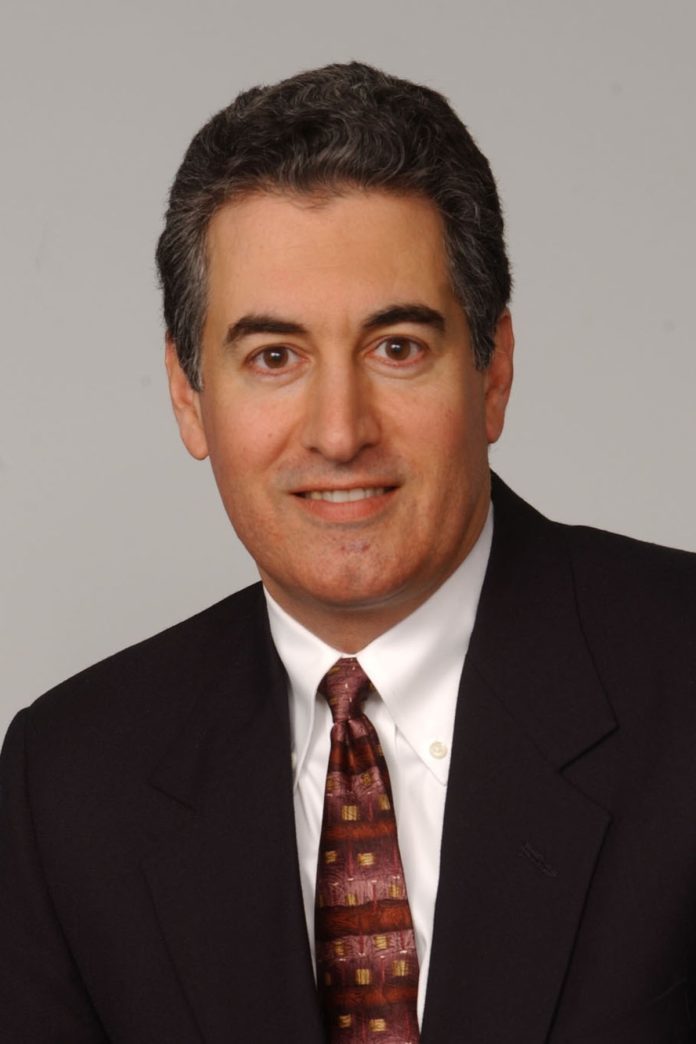Daniel J. Forte is president and CEO of the Massachusetts Bankers Association. The trade group has advocated for changes to The Dodd-Frank Wall Street Reform and Consumer Protection Act, known better as the Dodd-Frank Act.
Forte talks with Providence Business News about what Mass Bankers would like to see happen, how the regulatory structure is hurting regional and local banks, and how that trickles down to business.
PBN: When the financial crisis that began in 2008 was still in the news and on the minds of anyone focused on the economy and our financial system, Congress passed a sweeping set of new banking laws and regulations under the umbrella of the Dodd-Frank Act. What is the Massachusetts Bankers Association’s current position on Dodd-Frank and would you like to see it modified?
FORTE: One could say that Dodd-Frank was the wrong piece of legislation at the right time. By that I mean, Congress clearly had to do something after the financial crisis, but with any crisis there is a tendency to overreach. The result in Dodd-Frank included having segments with nothing to do with avoiding future crises, and significant over-regulation that was not tailored appropriately to fit the more than 6,000 banks of all sizes nationwide.
One example of that is price controls on card transactions at large retailers that are managed by banks. The Durbin Amendment in Dodd-Frank had nothing to do with the crisis, and clearly the big-box retailers were the beneficiaries at the expense of local consumers and banks. As former Banking Committee Chairman and co-author of Dodd-Frank, [former] Congressman Barney Frank, D-Mass., said, all major legislation has unintended consequences that need to be addressed after the fact, and Dodd-Frank is no different.
PBN: What efforts are you taking to effectuate that change?
FORTE: The unintended consequences that we’ve been talking to lawmakers about are not safety and soundness issues, but the onerous one-size-fits-all aspects of the legislation. The regulatory requirements of Wall Street investment banks should be vastly different than Main Street banks.
We’ve also been talking about some of the qualified mortgage rules from the newly created Consumer Financial Protection Bureau, forcing banks to be more restrictive in their lending requirements or, in some cases, exiting the mortgage business entirely. That’s not good for consumers or the economy. Similarly, nor is requiring nearly all banks to adhere to new mortgage servicing rules, managing property taxes and insurance in their own portfolios, and eliminating a consumer’s ability to choose how their mortgage is handled. Separately, punitive risk-based capital rules further hurt mortgage servicing, having the ironic effect of potentially pushing more mortgage business to less-regulated nonbanks – entities that were largely responsible for causing the crisis in the first place.
In addition, the Volcker Rule, to restrict United States banks from making certain kinds of speculative investments, was originally intended for international, large, investment banks only, not community banks. Likewise, Dodd-Frank created very arbitrary asset thresholds. For example, the $10 billion threshold – banks above it must discount card transactions – in the Durbin Amendment is just too low. There are a growing number of banks and credit unions that are moving across that threshold nationwide, with no increase in risk profile. Locally, one member bank estimates it will cost an extra $15 million a year now that they have crossed the threshold. So, I ask you, is this really necessary for community banks with no systemic risk for the nation’s banking system? The $50 billion threshold for “systemically important financial institutions” is even more punitive – thus the need for the tailoring.
A key issue that bankers always talk about to the lawmakers from Massachusetts and Rhode Island in D.C. is that we did well during the crisis. Our banks expanded small-business lending when it was really needed. We were not part of the problem; we were part of the solution. There are ways to improve the legislation by reducing unwarranted regulatory burdens, which ultimately will benefit consumers by creating a more competitive and varied marketplace of products and services.
PBN: What do you tell folks who might be skeptical about rolling back any part of a law created – in theory – to prevent a repeat of the 2008 financial crisis?
FORTE: Skeptics should understand, we are not saying anything today under the present Trump administration that we weren’t saying under the Obama administration, about any part of Dodd-Frank. We are not trying to end Dodd-Frank. We do not want to abolish the CFPB. But again, we are trying to address the unintended consequences of over-regulation, which impedes local banks in serving their customers.
PBN: How does a less-burdensome regulatory environment for local banks impact the overall business community?
FORTE: If banks are freed from some of the unnecessary regulations, they’d be able to devote more time and resources to serving retail and other small businesses. From a lending perspective, for example, when new reporting requirements were developed for residential mortgages by the CFPB, we would estimate that 95 percent of the required data could have been obtained by surveying the top 10 bank and nonbank lenders, as opposed to all 6,000 banks across the country. We just need to work smarter. We love our compliance officers in every bank, but they contribute nothing to customer service, or any bank’s ability to offer additional products and choices for businesses and individual consumers.
PBN: What other important legislation is the Massachusetts Bankers Association working on now?
FORTE: Tax reform is a major priority. Getting tax reform right is important for the economy and the country moving forward. A major issue we are focusing on is equal taxation for similar industries. For example, large credit unions that are in the commercial banking business should be taxed like banks. Locally, we are fighting against the expansion of credit union loopholes to grow membership, as well as opposing the credit unions’ efforts to be allowed to accept public deposits. Why should any business entity that does not pay taxes be allowed to profit from the holding of funds generated from other businesses and ordinary taxpayers who pay their taxes?
Separately, we are also monitoring the impact of the potential elimination of small-business interest deductibility. We don’t want a repeat of the unintended negative consequences to New England real estate values that we witnessed with tax reform in 1986. Another priority is reform of the national flood insurance program in light of the major hurricane season we’ve had.
Eli Sherman is a PBN staff writer. Email him at Sherman@PBN.com, or follow him on Twitter @Eli_Sherman.













